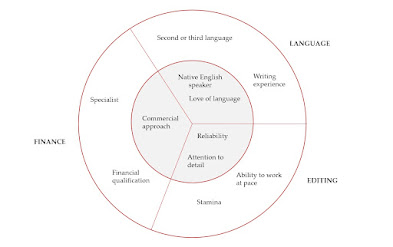What to Look For In an Editor

What makes a good editor? Here are some of the qualities and skills that make a good editor: Native English . Far more people in the world speak English as a second language than as a first. It is tempting therefore to think that simply having a high level of English is sufficient for an editor. However, the English language has a richness and depth that can only be fully grasped if steeped in it since infancy. This means that editors for whom English is not their native language will lack the proficiency and instinctive grasp of the language that native English speakers possess. Love of language . Natural editors have a deep appreciation and love of language. They love to read, often speak a second or third language and may have writing experience themselves. This affection manifests itself in their editing. They highly value accuracy, clarity and integrity in the written word and derive great satisfaction from improving and crafting it, drawing out the intended meaning with skill and...





